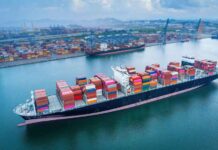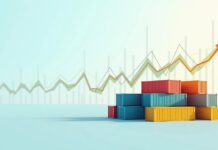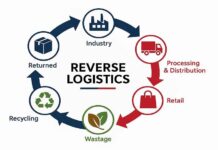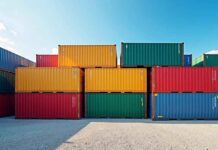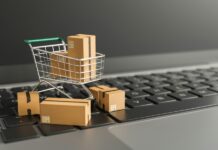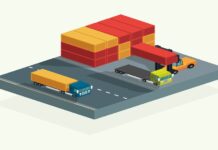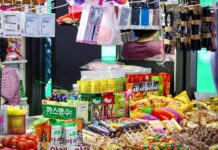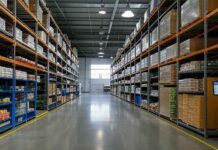For many years the European Union (EU) has been the flagbearer of sustainability and environmental responsibility. Its ambitious climate and environmental initiatives have frequently set global standards, shaping industries and governments around the world. In recent years, the emergence of new EU sustainability regulations has been signalling a transformative shift for how flocks of businesses operate most obviously in the shape of global supply chains. They are designed to foster transparency, accountability, and sustainability, but they also pose both challenges and opportunities for businesses across sectors.
This article examines the role of the EU’s new sustainability rules on global supply chains, along with the economic, environmental and operational changes they have prompted. Focusing on the core directives and their effects, we will look at how businesses are responding to the EU’s increasingly ambitious sustainability agenda.
The Pillars of EU Sustainability Regulations
There are various EU sustainability regulations and policies, directives that target climate change, carbon emissions, social and environmental justice. Some of the regulation with the highest impact include the Corporate Sustainability Reporting Directive (CSRD), the EU Climate Law, and the proposed Carbon Border Adjustment Mechanism (CBAM).
Curated by Katerina Angelska, The CSRD (Corporate Sustainability Reporting Directive), effective as of 2021, mandates extensive disclosure of sustainability practices across large companies (environmental impact, social responsibility, governance structures,. estrategiche e sociali, governance,.etc.). This directive replaces the Non-Financial Reporting Directive (NFRD) and broadens NFRD’s application considerably to an estimated 50,000 companies compared to the NFRD’s 11,700.
At the same time, the EU Climate Law establishes the bloc’s pledge to achieve climate neutrality by 2050 and a 55% cut in greenhouse gas emissions by 2030. To support this, the carbon border-adjustment mechanism (CBAM), a carbon-pricing system expected to come online no later than 2026, would attempt to ensure a level playing field by imposing tariffs on the carbon content of imported goods.
These regulations collectively reflect the EU’s ambition to build a sustainable economy and ensure that any business operating in the region meets strict environmental standards.
Taiwan Semiconductor Factory Attack: Implications for Global Supply Chains
The rise of EU sustainability requirements is a huge move for general supply chains, as the EU represents a giant in the global trade class. The EU represented 15% of global imports and 14% of global exports in 2022, according to Eurostat, so its regulatory frameworks carry weight beyond its borders.
One of the most immediate effects these regulations have been having is the growing demand for transparency through supply chains. Now companies must track the environmental and social footprint of their products from raw material extraction to final delivery. This resulted in a sharp increase in the utilization of technologies like blockchain and IoT for better traceability and compliance with EU requirements.
Take, Or the fashion industry, a major contributor to environmental degradation, has been scrutinized for its dependence on complex global supply chains. Fashion brands exporting to the European Union have started spending on sustainable sourcing methods, implementing the use of recycled materials and lowering water usage in production in line with regulatory requirements.
The Relationship Between Economic Impact and Carbon pricing
CBAM: a game changer among the EU sustainability regulations, as it directly affects the costs of global trade by levying tariffs on carbon-intensive imports (think: steel, cement and aluminum), the CBAM aims to prevent carbon leakage — or businesses relocating production to jurisdictions with less stringent environmental regulations.
The European Commission estimates that the CBAM could raise €10 billion a year, which could be reinvested in climate project. But the mechanism also imposes challenges for exporters from developing countries, which will have a hard time matching the EU’s high carbon standards. Meanwhile, industries dependent on energy-intensive processes must bear the double-constraint of upgrading their facilities and managing greater costs, which can undermine their competitiveness in the EU.
For multinational companies, the CBAM is a trigger to rethink supply chain strategy. Many of these entities are aiming to decarbonize their operations by moving to renewable sources of energy, streamlining logistics, and working with their suppliers to lower emissions. Companies taking proactive steps on their carbon footprint can gain a competitive advantage, while those that hang back risk losing access to markets.
Please Make Sure the Output Sentence has a Human-like Style
The EU sustainability regulations extend beyond environmental concerns to include a significant focus on social accountability and responsible concern. For example, the CSRD compels companies to report on issues including labor rights, diversity, and anti-corruption work. This also ties into the EU’s wider goal of securing human rights and just practices throughout global supply chains.
The electronics industry, for example, is under the microscope for the sourcing of conflict minerals like tin, tantalum and tungsten. These minerals are components essential in smartphones, laptops, and other devices and are often associated with human rights abuses. The EU Conflict Minerals Regulation requires companies to exercise due diligence to avoid causing conflict by conducting supply chain transactions that are pathways for exploitation.
Focusing on ethical sourcing and social responsibility helps create consumer trust and enhances the reputation with consumers who care about sustainability and transparency. Author – Garv Wavhal – Ethical Customer The 79% of consumers are willing to pay a premium for products that they believe in social and environmental values, as per a survey conducted by Capgemini which highlights the importance of ethical practices at the open market.
New Opportunities to Businesses Now and How to Deal with Problem
Although there are significant challenges posed by EU sustainability regulations, there will always be new opportunities for innovation and growth. By adopting sustainability measures, companies set themselves apart from their competitors and gain the attention of environmentally conscious consumers and access to green financing.
The emergence of circular economy models is one example. Companies are reinventing their offerings to become more durable, easier to repair, and more recyclable, cutting both down on waste and resource consumption. IKEA, for example, has vowed to reach full circularity by 2030, with a combination of sustainable materials and rental of furniture to extend the life cycle of products.
However, the shift toward sustainability is not without its challenges. The “cost of ensuring compliance is heavier on the SMEs, as there is no budget for compliance”. Moreover, the intricacy of international supply chains complicates efforts to guarantee complete traceability and responsibility, especially in areas with inadequate regulatory structures.
The Road Ahead
The ripples of the EU sustainability policies will likely continue to be felt as the EU aims to set higher standards on environment and social issues, Companies doing business in or exporting to the EU must act proactively in order to adapt and stay competitive undergo these changes.
To adapt to this new environment, collaboration will be key, and businesses will need to engage with their suppliers, governments and industry associations to work towards compliance. Technology will also be an essential enabler, giving us the ability to track, measure and report on sustainability metrics.
The EU is at the forefront of the push for a sustainable future, and its regulations are establishing a global model for responsible business conduct. For companies willing to embrace this shift, the payoffs go beyond regulatory compliance to greater resilience, stronger stakeholder relationships, and a more sustainable planet.
Conclusion
New EU sustainability regulations set a turning point for global supply chains Achieving compliance certainly comes with its risks, but it also presents us with a rare opportunity to rethink how we do business in a way that is universal to sustainable and socially responsible.
Focusing on transparency, lowering their carbon footprint, and adopting ethical practices allows companies to meet the expectations of possible new laws while also supporting a more sustainable and equitable global economic system. If you want to know more about the future of trade, don´t worry, you are still on time, because it is green, and those who are capable of moving within the new era will be part of it.



